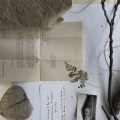Radha’s Paper Artistry
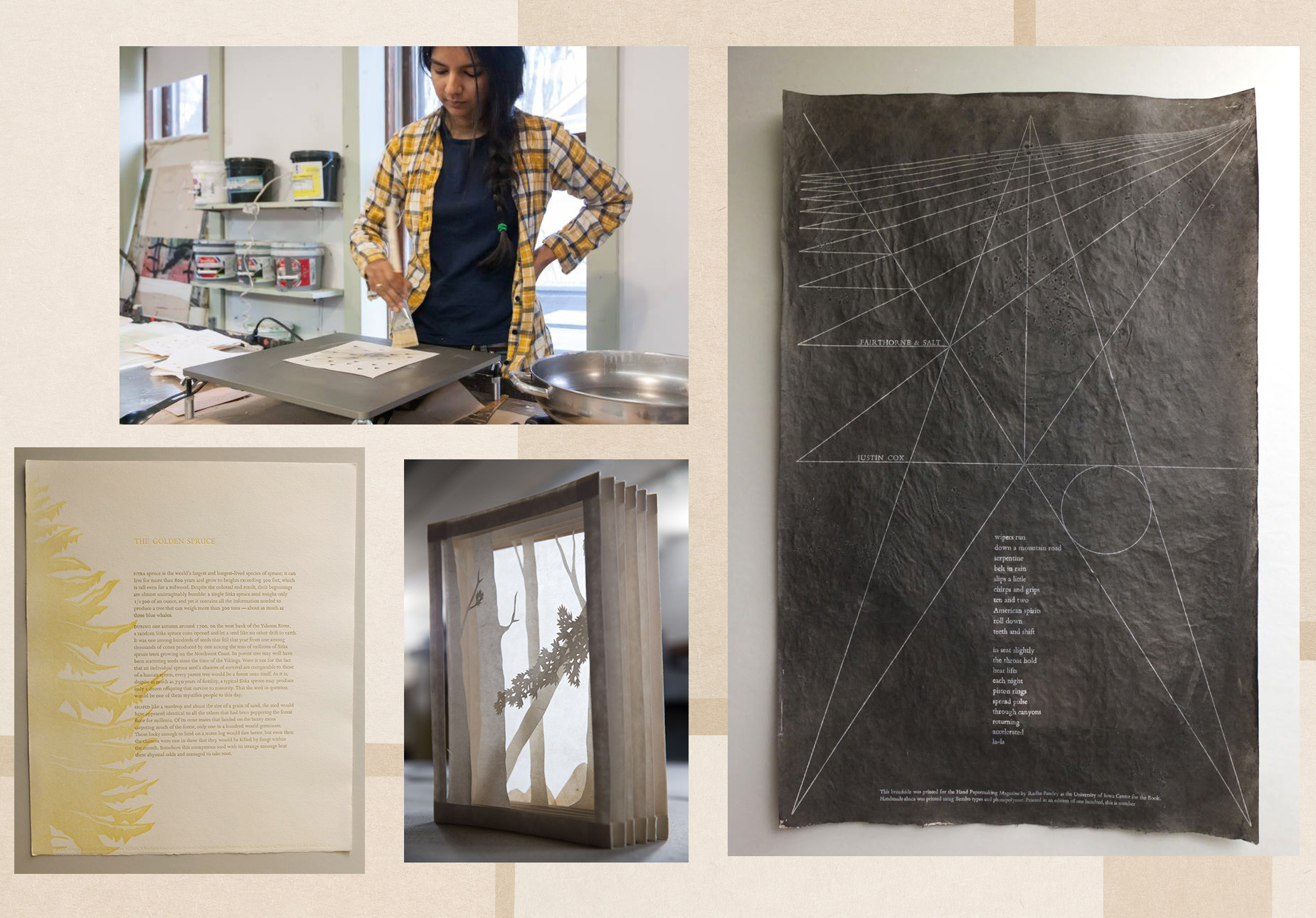
I was first introduced to Radha Pandey’s work by Jasleen, a client. I was immediately taken with her art & began following her work, recently attending an online workshop Radha conducted on the History of Paper Making in India . Radha’s art finds expression through handmade paper, some of which she makes herself. Dyed, cut, sculpted and letter-pressed she narrates a personal tale through the transformed paper , one that is influenced by her perception ‘of the natural world and its fragility in relation to human existence’. Her sensitive paper art, tactile and imperfect was naturally suited for the kind of residential space we were creating for Jasleen. On the design project, we used 4 pieces of her paper art– Deep Time, Fairthorne & Salt, Sonnet 64 and Forest Light. I speak to Radha about these pieces and her interest in paper–
What is it about paper that interests you? How did your journey into the world of paper and printmaking begin?
The texture, the colour, the transparency and the strength of paper all provide constant inspiration for my work. It all started when I was five, and my mother brought back washi from Japan. Very different from anything that was available in the Indian markets at that time. It was magical and completely transformed the way I thought about the material.
When did you decide you wanted to do this professionally? Was it an easy choice to make?
I decided I wanted to pursue paper professionally when I met others in the field at a paper conference in the US. I had worked with paper and books before that for about five or so years, but what made me sure was seeing others pursuing their passion for something non-mainstream, and doing what they loved day in and day out.
We have used Sonnet 64 and Fairthorne & Salt among others from your work. Could you describe the artistic process’ that went into creating them?
Sonnet 64 was created for 100 years of Shakespeare for the Bodleian Library at Oxford. I wanted to use something non-traditional (vis-a-vis Europe) for this very traditional form of poetry. I used handmade Indo-Islamic papers made from hemp. I dyed these using onion skin and iron. The sonnet talks about a day heavy with rain clouds, and that is what I hoped the dyes would convey. Each piece is different.
With Fairthorne & Salt, I worked with a poet and a friend, Justin Cox. He wrote a poem based on an animation of an equation made as a teaching aid by two mathematicians, Robert Fairthorne and Brian Salt, in 1936. I used the graphic quality of the animation to create a palette for the broadside. It is printed with white ink on paper stained I black using sumi ink. The paper was specially made for the project. I added salt to the sumi ink to create the patterns on its surface to tie back to the glitchy quality of the animation.
Deep time is a beautiful piece of work that looks like it took you some effort to create. How long did it take you to make and what was the process?
From start to finish, Deep Time took me almost 3 years. It is still not finished! I am still cutting out those pages bit by bit, whenever I have a spot of time and need some tedium in my life. I did a lot of testing before launching into the project, so most of the mistakes were made on those papers that I was testing, but yes, natural dyes are very unpredictable by nature and cannot give consistent results. So there were many inconsistencies in my final pieces that I had to live with, which make every book all the more unique.
Is creating your work therapeutic- are you in ‘the flow’ when you’re doing it?
Yes, to a certain extent, some part of what I do is therapeutic. I am ‘in the flow’ when I am deep into one of the many steps that happens to be repetitive. For example, once I have got the inking just right on the press, and I’ve pulled about 15 acceptable prints, I can tune out just a little and enjoy the process. And when I have got the paper recipe down and have a good feeling for the weight of the mould in my hands as I lift it out of the water, I can relax. At that point, I know each sheet will be about the same thickness in the end and I can enjoy the act of making and not focus too much on the technicalities of the craft. As with any hand-craft, there is a lot of set up and clean up, and very little actual making. So the feeling of flow doesn’t last too long.
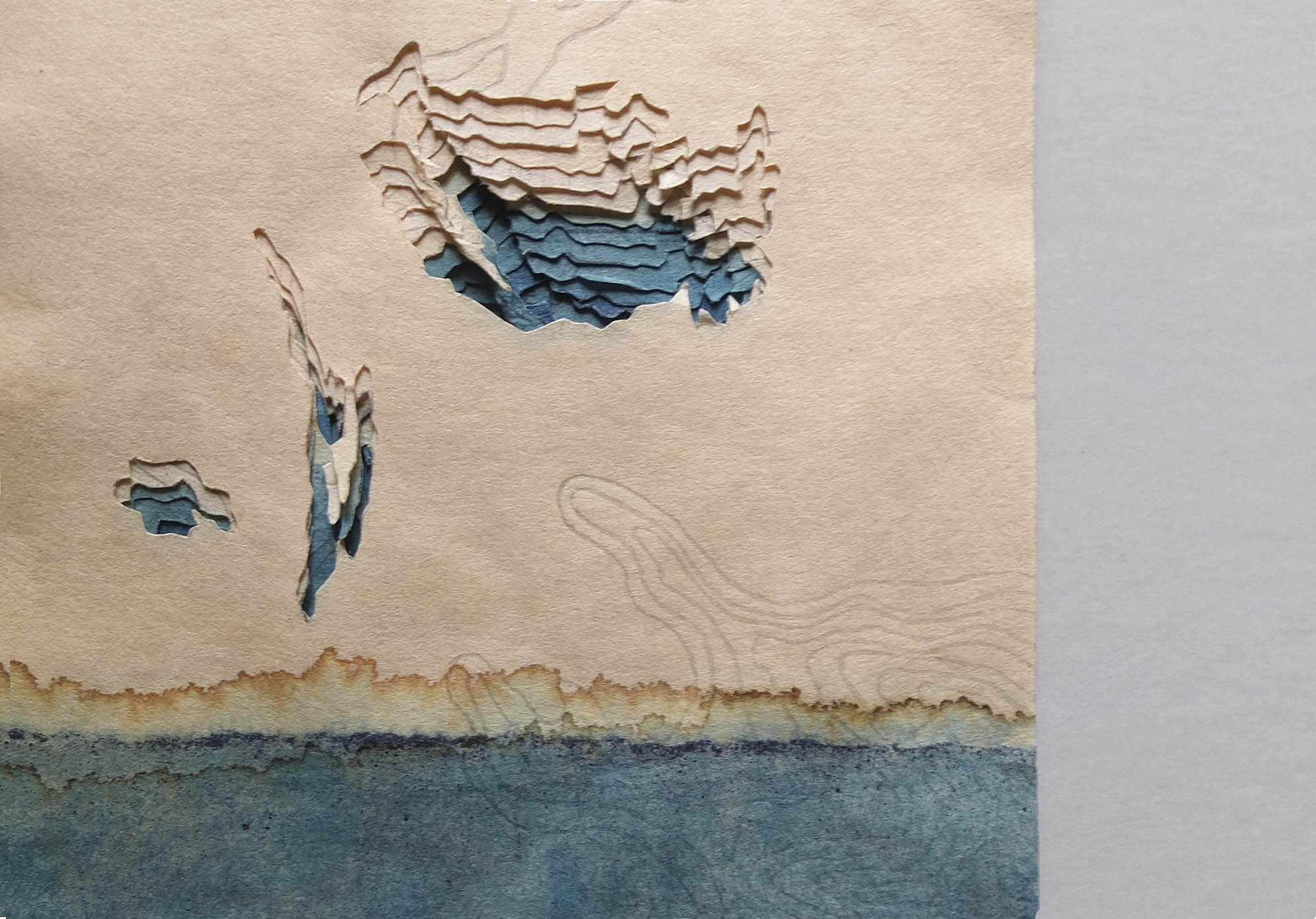
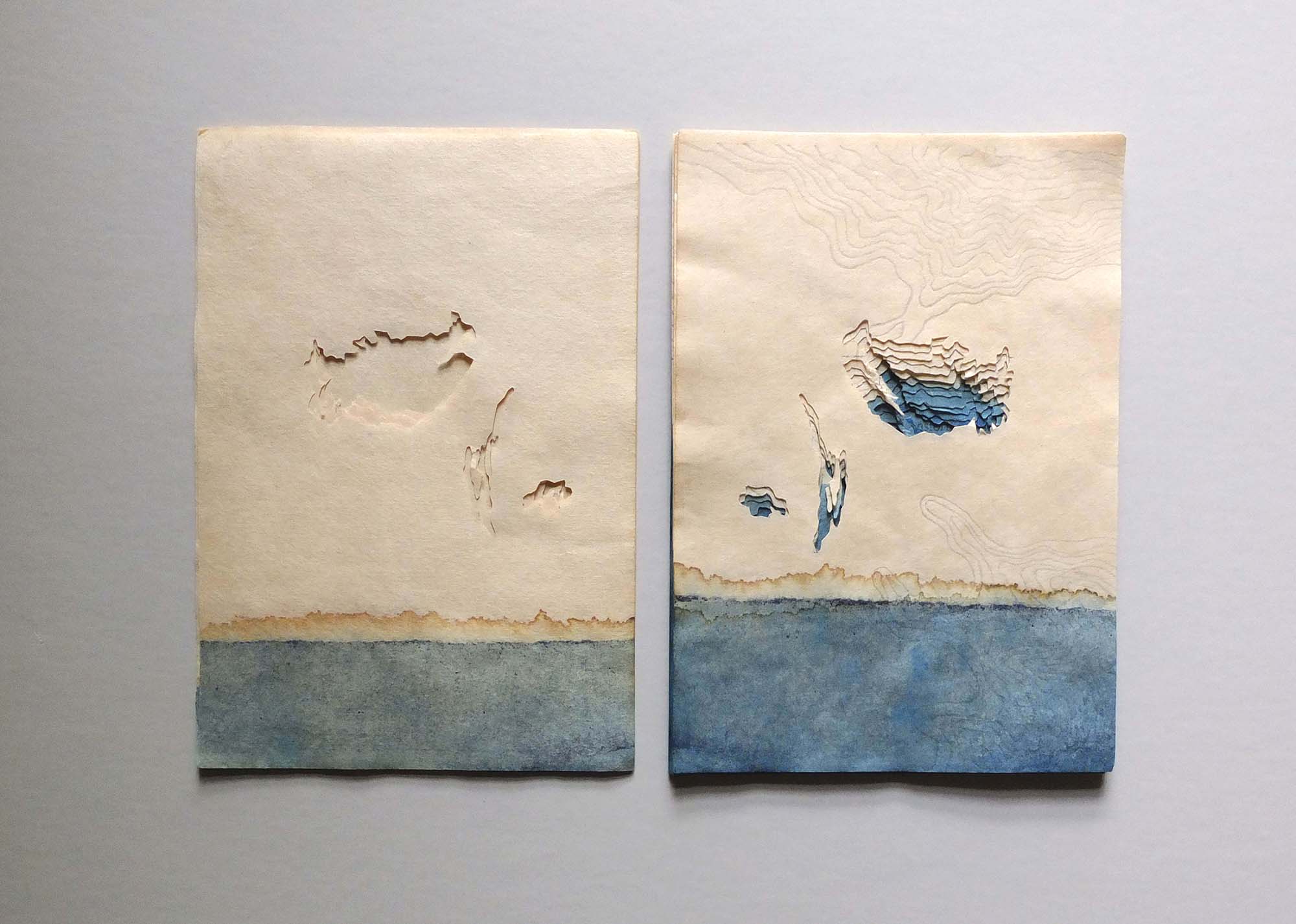
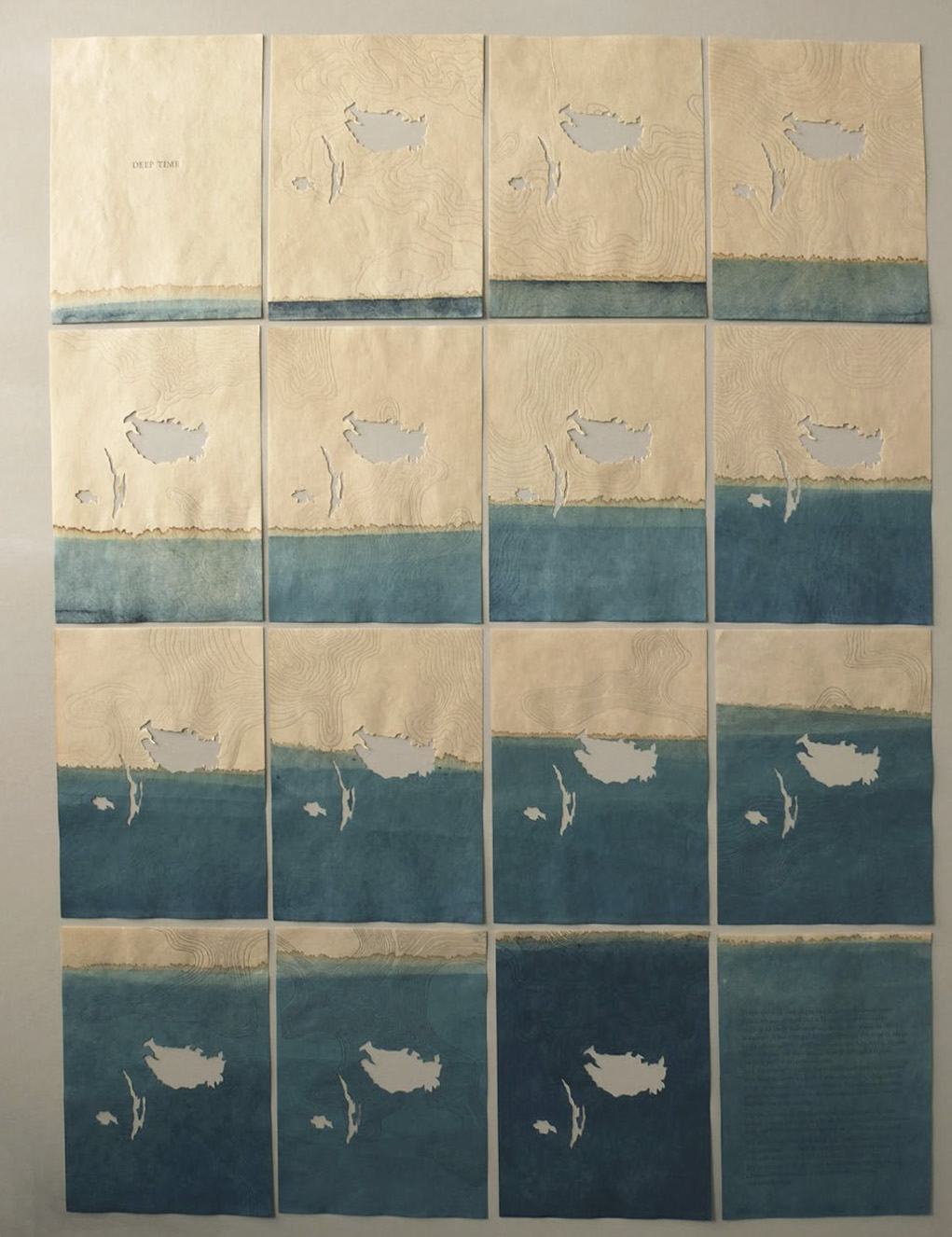
Deep Time Medium: Letterpress printed on dyed kozo. Deep Time explores the relationship between water and soil through the processes of erosion and sedimentation. As the reader progresses through, the indigo dye or water, creeps further up the page, eroding the clove dye, or the soil. The cut shapes sediment and erode as they are placed at slightly different positions on each spread. Printed on kozo dyed with cloves and indigo, this book is letterpress printed with wood engravings of contour maps of the Himalayan range. Cut shapes are the boundaries of the highest physical features of our planet, namely the Tibetan plateau, the Kanza’gyal mountain range, and the Andean mountain range. The set starts with the title page, and the last spread contains text bringing the conceptual nature of the piece to the fore.

Sonnet 64, poetry broadside Medium: Letterpress printed on islamic-style paper, naturally dyed. This Sonnet was printed for a collection call by the Bodelian Library, UK to celebrate Shakespeare’s First Folio. Printed using handset Bembo types, the paper was made especially for the edition and was hand dyed using yellow onion skins and iron.
Radha’s work can be seen here
Get to know about her workshops here



